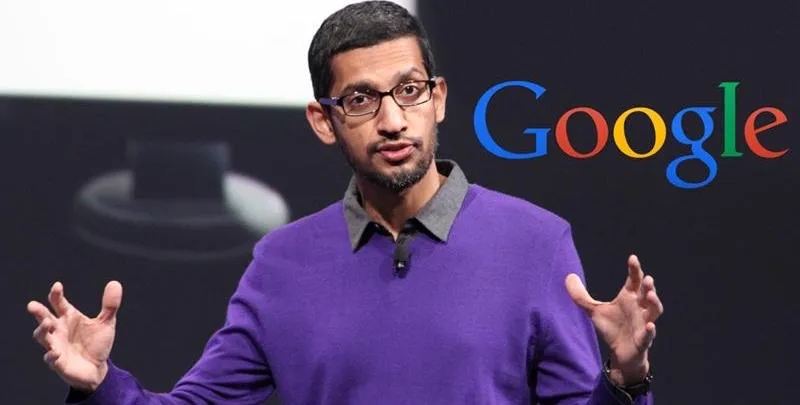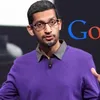We will do well only if others with us do well, says Google's Sundar Pichai at WEF 2020
Sundar Pichai added that he is clear-eyed about the risks of technology, but the risk of AI is failing to work on it because it can affect billions of people.
Google CEO Sundar Pichai on Wednesday said the company will do well only if others alongside it do well, as he dismissed any risks from the tech giant becoming too powerful.
"With our scale rightly comes scrutiny. Yes, we've bought startups, but we also invest every year in hundreds of startups through our venture arms," Pichai said at the WEF 2020, in a conversation with World Economic Forum Founder and Executive Chairman, Klaus Schwab.

Google CEO Sundar Pichai
Schwab asked him whether there is a risk that Google may become too powerful. "We will do well only if others do well alongside us," Pichai answered.
When asked about Google's future plans, he said, Alphabet has the flexibility to have different structures to allow it to take a long-term view, working on how technology can improve people's lives further into the future.
Pichai is also the CEO of Google's parent, Alphabet.
He said the world needs a free and open internet for everyone, and hoped that all countries will come together for a common regulatory framework for artificial intelligence (AI).
Speaking at the WEF 2020, Pichai also said privacy cannot be a luxury good and it has to be safeguarded for everyone.
"We need a free and open internet for all, as data sovereignty is important for every country, and that needs to be taken into account in any data protection framework in any part of the world. Internet is an export product. Even in India, if we talk about YouTube, a video created by an Indian gets audience from across the world. That's the beauty of digital economy," he said.
Pichai said he has always been a technology optimist, having experienced firsthand the benefits of new technology brought to his life.
"Growing up, I had to wait for either a telephone or a television, and each time these things came to my home, I realised what important role technology plays in our lives. More recently, we have seen how AI can play a great role, including for doctors and weather forecasts," he said.
Pichai added that he is clear-eyed about the risks of technology, but the risk of AI is failing to work on it because it can affect billions of people.
On quantum computing, he said this is a major milestone because quantum computers can do a lot many things that classical computers cannot.
"With this, we can simulate nature better and we can better predict weather and climate change. They can make better batteries. It's very profound," he said.
"When I look at the future, quantum will be the next big arsenal in the way of technology. We will need to work a lot. The combination of AI and quantum computing would be amazing. Also, quantum's combination with biology would present huge potential, but obviously, we will have to be very careful," Pichai added.
Addressing the challenges of regulating AI, he said, "AI is no different from climate - you can't get safety by just one company or country working on it - you need a global framework." Pichai said he is optimistic that all countries will cooperate in such a framework.
"I think there will be a common gravitational pull - regardless of who you are because people will recognise the need of such a framework for the sake of peace and prosperity," he added.
(Edited by Suman Singh)









